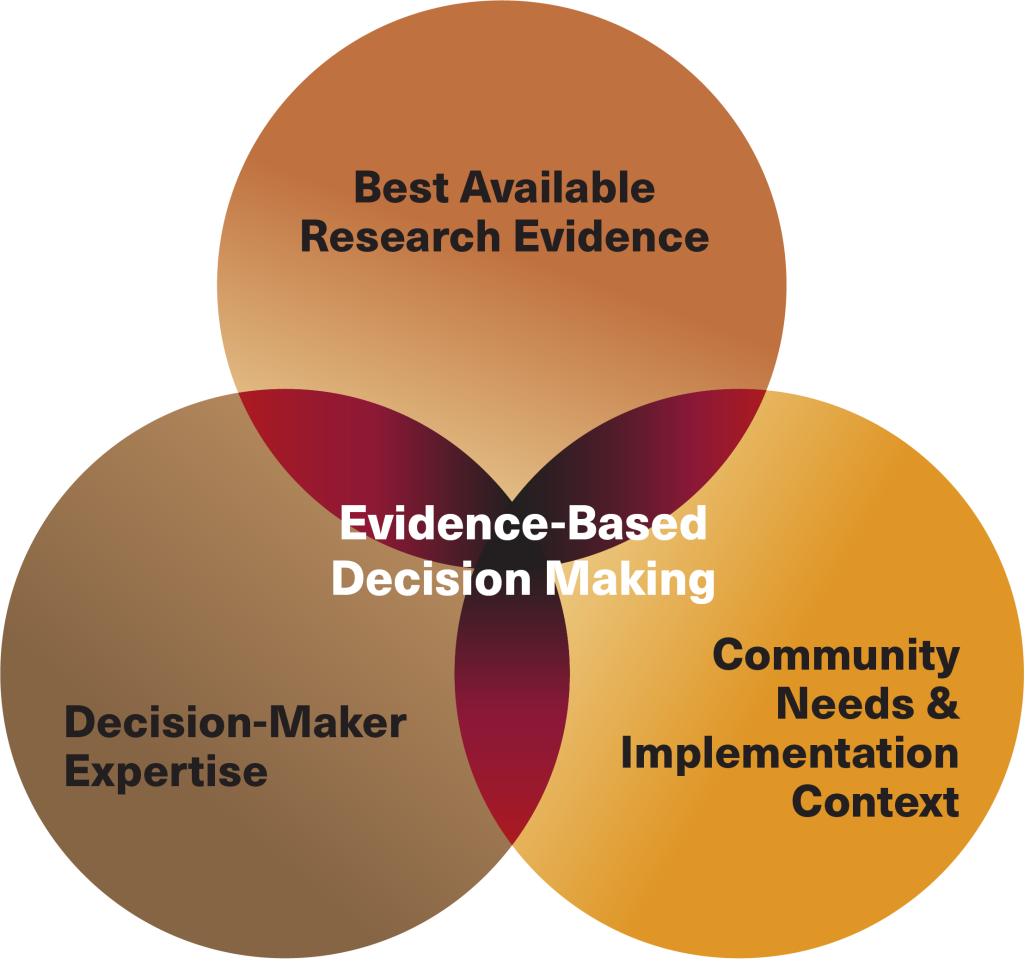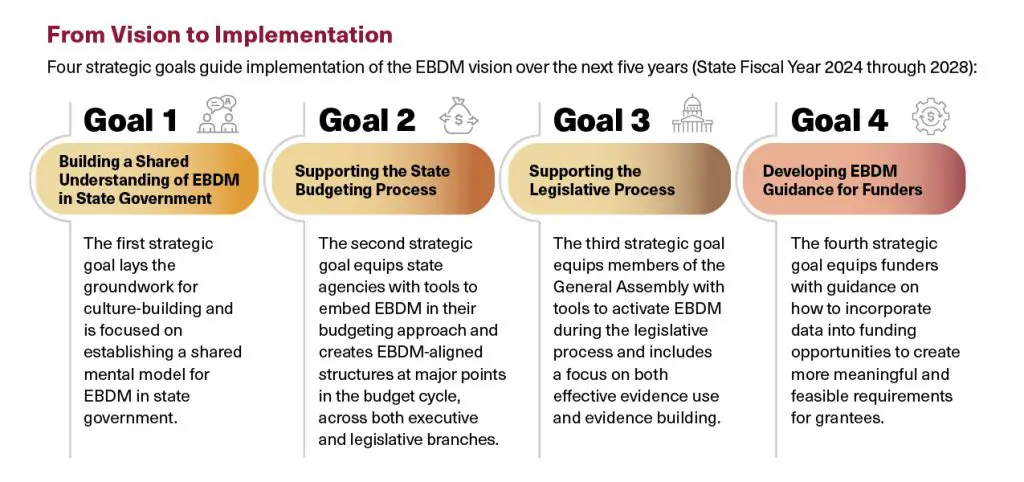Vision and Strategy
Evidence-Based Decision Making is critical to driving smart state investments, continuous quality improvement, innovation, and outcomes. By making explicit Colorado’s shared understanding of EBDM and our approach to it, we can align roles and responsibilities, accelerate progress, and build on the good work that has come before.
What is Evidence-Based Decision Making?
Evidence-Based Decision Making (EBDM) is the intersection of the best available research evidence, decision-makers’ expertise, and community needs and implementation context. EBDM recognizes that research evidence is not the only contributing factor to policy and budget decisions. For example, even if a program has excellent research evidence and low costs, the local labor market may not support expansion of the program in Colorado.

From Vision to Implementation
Achieving an EBDM culture in Colorado requires cross-system support and alignment. Decision makers will be more likely to contribute to an EBDM culture if provided with shared knowledge, skills, and tools for using data effectively and efficiently. As such, the strategy for implementing EBDM in Colorado is organized around both the culture we are striving to achieve and the structures necessary to support the culture.

Goal 1: Building a Shared Understanding of EBDM
Establish a shared understanding of EBDM in state government and create the conditions necessary for culture building.
Goal 2: Supporting the State Budgeting Process
Equip state agencies with tools to embed EBDM in their budgeting process and align structures in the budget cycle across executive and legislative branches.
Goal 3: Supporting EBDM in the Legislative Process
Equip members of the General Assembly with tools to employ EBDM during the legislative process.
Goal 4: Developing EBDM Guidance for Funders
Support state government and philanthropic funders in creating opportunities for grantees to learn from their own data to enhance sustainability while meeting the needs of those they serve.
